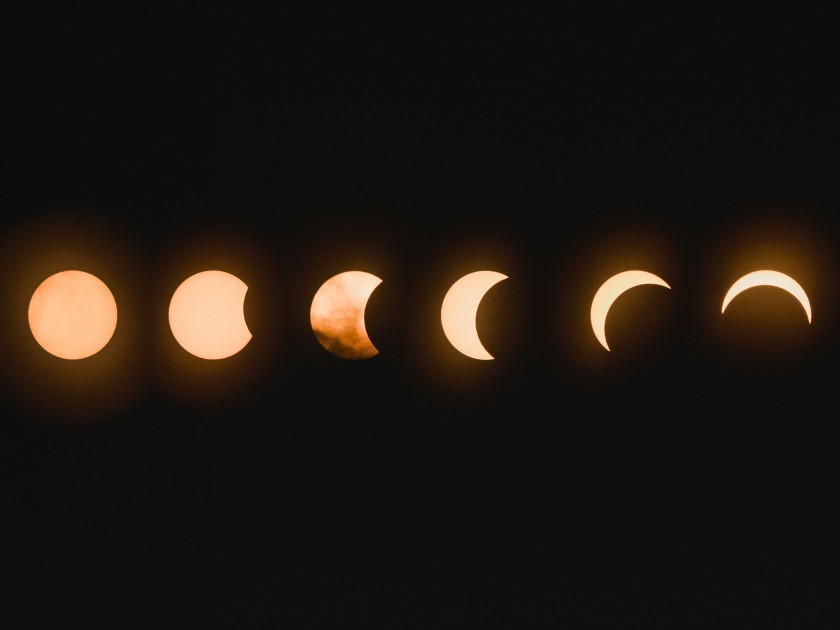
Image from Unsplash
In my high school graduating class in Norman, Oklahoma, only three kids out of eight hundred were Jewish, and one of them claimed not to be — she said she was a pagan and that her family celebrated winter solstice with a Yule log. Her name was Alice but her brother’s name was Isaac, and both siblings excelled at math and the violin.
Although I was Jewish, I knew very little about my religion. I’d never heard of a minyan and the only bar mitzvah I’d attended was my brother’s. The person who ran the Hillel was not a rabbi, but simply a nice man with a strong knowledge of Hebrew who had moved to nearby Oklahoma City for some job or another, which had either fallen through or simply disappointed him. At Sukkot, a Chabad rabbi from Tulsa would drive down to the Hillel parking lot in a pickup truck that he’d transformed into a traveling sukkah. He’d tell a story to the few children who were gathered, and then he would give us a chance to smell the etrog, which was kept in a box lined with satin.
But I was curious about Judaism. The handful of Jewish books that came my way I read like clues. In high school, a friend of mine (who was not Jewish) introduced me to Harry Kemelman’s mystery series, which features the wonderfully named Rabbi Small as a detective. Friday the Rabbi Slept Late seemed like a goofy title — and also, out of context, like the result of a Mad Lib. Though the stories were realistic, and the mysteries were often of the human-heart variety, the series seemed to imply that Judaism had a connection to the enigmatic — which, using the tools of logic, it could also help to decode.
The book I remember best, The Rabbi and the Twenty-Nine Witches by Marilyn Hirsh, was from earlier in childhood. We must have gotten it at a garage sale; my parents weren’t book-buyers, and even less were they buyers of books with words like “witches” in the title. Witches, vampires, ghosts — all of the fanciful creatures that intrigued kids, they considered nonsense.
The book confirmed my notion that Judaism was about solving riddles or puzzles, and that it had a strong dose of magic. The story posed what seemed a mythic problem: a town suffers every month, on the full moon, from a terrifying visitation of witches. Milk sours, babies cry. Also, no one ever gets to see the full moon. Only on rainy full-moon days do the witches not visit.
I was curious about Judaism. The handful of Jewish books that came my way I read like clues.
The wise rabbi is consulted, and he turns it over in his mind. If full moon, then witches; if no full moon, no witches. But if it rains … and he reaches his aha: the witches can’t survive the rain. He enlists the help of twenty-eight townsmen and gathers a bunch of white robes and covered clay pots. On a rainy full-moon night, the men hike up to the witches’ cave. Before entering, they change into the robes, which they’ve keep dry in the pots — although they tell the witches they accomplished this by dancing between the raindrops. A strange and deceptive party begins. In a final move, the men invite the witches to dance between the raindrops — “No one has asked me to dance in four hundred years!” — and the witches dissolve in the rain.
Looking back, I notice the sweeping portrayal of men as brave and women as coquettish and evil. But what still moves me is that after the witches are defeated, one of the men observes that such a terrible thing shouldn’t happen to his worst enemies. Even winning is sad, wrong. Later I connected that sentiment to the drops of wine removed from the seder cup to represent each of the plagues suffered by the Egyptians.
As a college freshman, I enrolled in a Jewish mysticism course. I hoped that I would finally reach the core of the magic I’d always sensed in my religion. But in fact I learned a tiny bit less than I had by the attentive, hopeful reading of my garage-sale and high-school-library books. Trying to imagine an unknowable whole from those books was more illuminating; it more closely resembled the tradition of reasoning and storytelling of which I didn’t yet understand I was a part.
Rivka Galchen is a journalist and fiction writer. Her most recent work is the children’s novel Rat Rule 79.